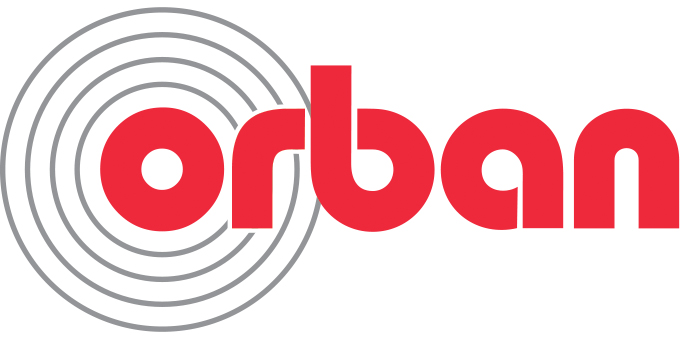Summary
The First Product in Orban’s Newest Generation of Audio Processors
The OPTIMOD 5950 is a compact 1 RU design and offers a powerful package of features including Orban’s breakthrough MX Peak Limiter technology. Equipped with a high-resolution touch display and the ability to be controlled remotely via any HTML5 web browser, the OPTIMOD 5950 combines user-friendly operation with the highest quality OPTIMOD audio processing for FM and DAB+/HD Radio broadcasts.
With its analog, AES3, composite and digital MPX, and AES67/SMPTE-ST2110 inputs and outputs, the OPTIMOD 5950 can easily be integrated in any studio and transmitter environment. Additionally, optional μMPX allows a cost-effective transmission of digital MPX signals over IP. The OPTIMOD 5950 is equipped with Orban’s latest audio processing features including the MX Peak Limiter to decrease distortion, a Subharmonic Synthesizer for a punchy bass and a Multipath Mitigator/Phase that reduces multipath distortion without compromising stereo separation. Its onboard RDS/RBDS generator supports dynamic PS scrolling and IP access. A complete set of measurement tools including oscilloscope and FFT are available for monitoring audio signals. Additionally, Ember+ and SNMP v2 protocols are supported for remote control and monitoring.
Features
Featuring technologies from its flagship 8700i, Orban’s new OPTIMOD 5950 includes several proprietary Orban technologies. The MX peak limiter decreases distortion, increases transient impact, and provides more high frequency energy. The multipath mitigator/phase corrector prevents high frequency loss during mono listening, including weak-signal blending in car radios. The subharmonic synthesizer generates punchy bass. OPTIMOD 5950 simultaneously processes one stereo program for FM and DAB+/HD Radio/Streaming. The settings can be coupled to make the blend between analog and HD1 as smooth as possible in HD Radio. Alternatively, the FM and the digital processing can be adjusted independently. This is valuable when the digital processing drives a channel that does not require blending, such as an Internet stream.
Technical Specification
Six Processing Structures: Five-Band, Low-Latency Five-Band,
Ultra-Low-Latency Five-Band, Two-Band, Five-Band MX and Two Band MX.
Window-Gated AGC: Intelligent two-band window-gated AGC
controls levels subtly and unobtrusively.
RDS/RBDS: Onboard generator supports dynamic PS scrolling
and IP access.
Factory Presets: Like all OPTIMODs, the 5950 also comes with a
variety of factory presets; Orban’s exclusive “Less-More” control
simplifies creating your own signature sound.
AES67/SMPTE ST-2110: Two redundant network interfaces are
available for Audio-over-IP connections supporting AES67,
RAVENNATM and SMPTE ST-2110. AES67 provides Dante and
Livewire+TM compatibility.
Remote Control/Monitoring: OPTIMOD 5950 can be configured
and controlled via any HTML5 web browser. It also supports the
SNMP v2 and the Ember+ protocols.
Measurement Tools: The HTML5 web browser control user
interface offers a complete tool set to measure and monitor your
audio signals including oscilloscope and FFT displays.
Audience Measurement: Two internal Nielsen or Kantar
Encoders are optionally available, allowing the FM and the
DAB+/HD Radio signals to be watermarked independently.
Streaming Monitor Output: The processed FM or DAB+/HD
Radio signals can be monitored remotely via IP, allowing processor
adjustment in locations where a clean off-air signal is unavailable.
µMPX interface: The optional µMPX Interface allows you to
transmit DMPX over IP.
Internal Storage for Audio Backup: A 2 GB Flash Memory
provides two hours linear or twelve hours AAC, MP3 or OPUS
encoded Audio.
Internet Streaming Decoder: This feature can be used as a
backup audio source received via Audio-over-IP.
Diversity Delay: An adjustable delay can be inserted in the FM
and/or digital path to ensure time-alignment of the FM and HD
Radio/DAB+ signals at the receiver.
“True Peak” Limiter: The “True Peak” limiter in the digital
processing path anticipates and controls peak levels following D/A
conversion, a feature now required by many broadcasters.
ITU BS.412 Multiplex Power Control: For countries requiring the
multiplex power to be constrained to a specified limit, this feature
can be activated to ensure compliance while controlling MPX
power smoothly and reliably.
ITU-R BS.1770-4 Loudness Control facilitates compliance with
modern target loudness recommendations like EBU R 128.
Silence Detection: A programmable silence detector is available
for the analog, digital and AoIP inputs. It can generate alarms and
allows automatic switching to a backup input/input audio storage.
Dual Power Supplies: OPTIMOD 5950 is equipped with
monitored dual-redundant power supplies to ensure 24/7
operation.
Safety Bypass Relays: The analog, digital AES3 and the
composite audio inputs and outputs have defeatable safety bypass
relays that operate in case of hardware or power failures.
Audio Inputs: 2 x analog
2 x digital AES3
2 x Ethernet for AoIP (dual-redundant)
Audio Outputs: 2 x analog
2 x analog MPX/composite
2 x digital AES3 or 1 x digital AES3
and 1 x DMPX (configurable)
2 x Ethernet for AoIP (dual-redundant)
1 x headphone output (for monitoring)
Optional 1 x µMPX (DMPX over IP)
SCA Inputs: 2 x
Synchronisation: 10 MHz clock input
AES11 sync input
19 kHz pilot tone reference output
GPIOs: 8 x inputs, 2 x outputs
Latency: 4 – 260 msec (depending on the
processing structure)
Low-latency AES Output: 3 – 8msec
IP Network: 1 x RJ45 Ethernet Management
2 x RJ45 Dual-redundant AoIP




